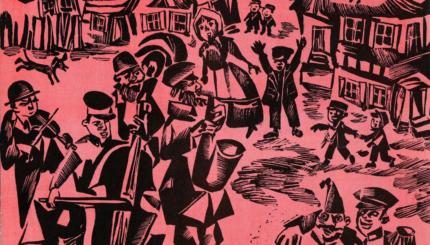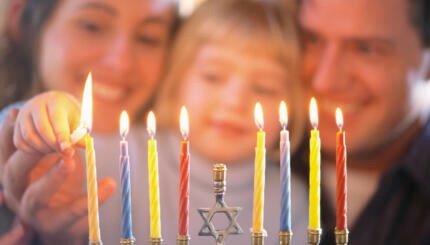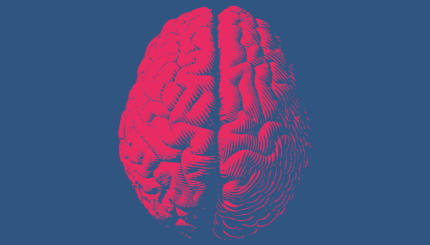Similar Jewish Words You Don’t Want to Mix Up
From kibbitz/kibbutz to mitzvah/mikveh, we round up some easily confused Hebrew and Yiddish terms.
Ask the Expert: Applauding During Services
The ancient rabbis forbade clapping on Shabbat — for one very specific reason.
What Were Shtetls?
Clearing up myths about these Eastern European villages where Jews lived.
In God’s Image: B’tselem Elohim
Jewish texts teach that all humans are created in the image of God.

The Jewish Way To Make a New Year’s Resolution
Jewish wisdom, anchored in the rhythms of the year, can help us set benchmarks that make sticking to our commitments more likely.
Next Torah Portion
Summary
In this Torah portion, Joseph promises Jacob that he will bury him in Canaan. On his deathbed, Jacob blesses his grandchildren, Ephraim and Menashe, and then blesses each of his sons. Jacob dies and is embalmed. Joseph affirms to his brothers that he has forgiven them for their misdeeds. Ending the Book of Genesis, Joseph dies.
Featured Commentary
Parashat Vayechi: The Legend of You and Me
Jacob’s blessing to his son Joseph offers a potent metaphor about maintaining steadfastness in a world defined by rapid change.
Daf Yomi
STUDY RESOURCES
Recharge Now
Our weekly Shabbat newsletter, Recharge, features a thoughtful, timely essay to enrich your Shabbat. Here are a few of our recent pieces:
Uncertainty is a Feature, Not a Bug
Anxiety is an inevitable part of life, so how do we best live with it?
Why Hanukkah Became Such a Big Deal
Though it is ostensibly about the purification of the Temple, Hanukkah really marks the political achievement of the Hasmoneans.
The Light of Connection
Differences need not diminish us.
MORE from MY JEWISH LEARNING
7 Ways the Torah Can Actually Sharpen Your Mind
Engaging with Torah is like yoga for the mind: It keeps our perspectives flexible and creativity strong.
The Jews of Greece
The oldest Jewish community in Europe traces its history back more than 2,300 years.
Shehechiyanu: A Meditation on this Moment
This blessing, traditionally recited for firsts, can be said anytime — since every moment is new and unprecedented.
How to Talk to God
The Hasidic prayer practice of hitbodedut — talking to God freely in one’s native tongue — helps to build intimacy over time.
Tikkun Olam: Repairing the World
This phrase with kabbalistic roots has come to connote social justice.















